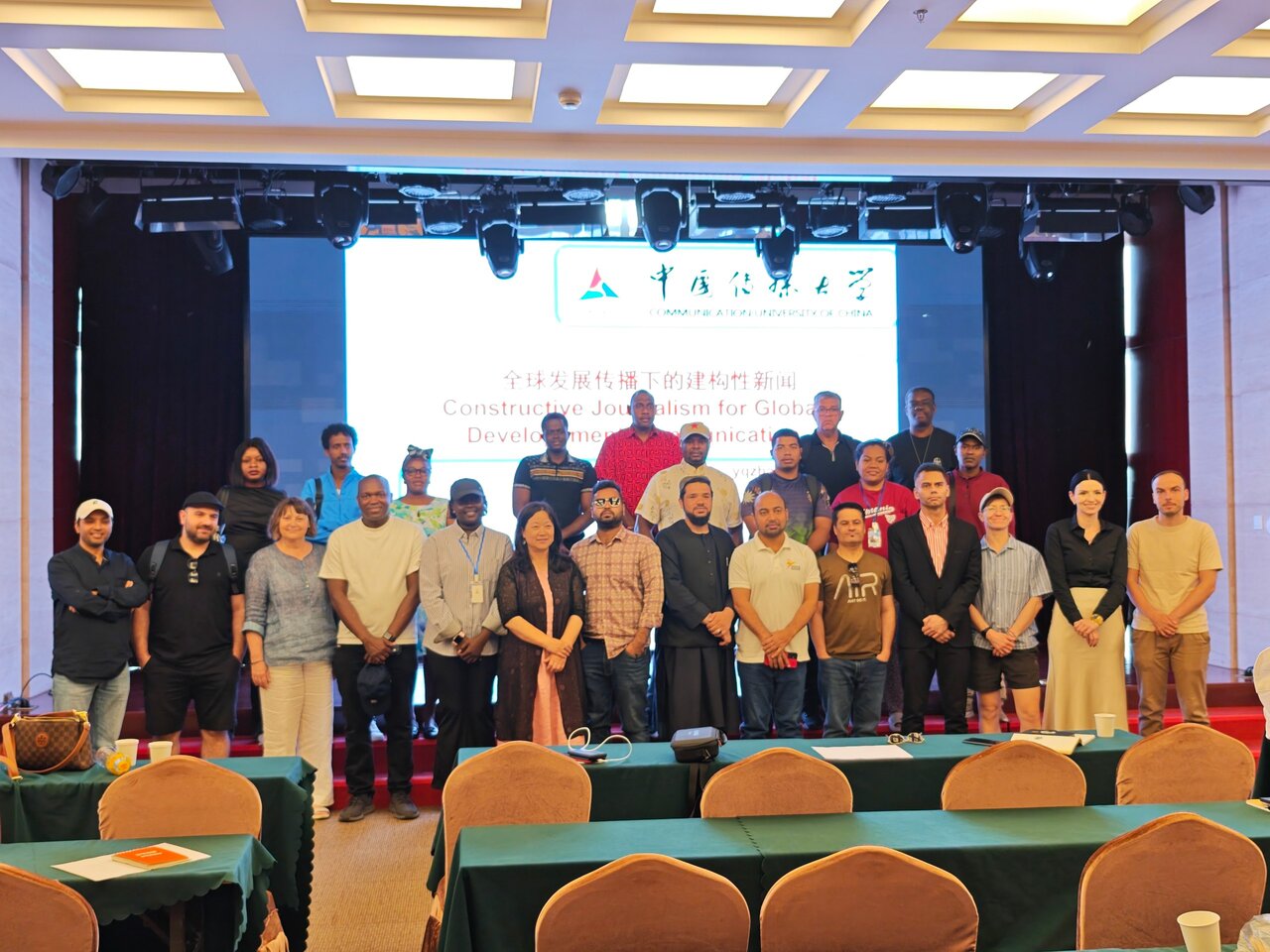New architects, new order: Global South and China rewrite rules of global governance

BEIJING – China’s vision for a community with a shared future for mankind is evolving from rhetoric into tangible global structures, offering developing nations a powerful counter-narrative and mechanism to challenge Western-centric world order.
Professor Zhang Yanqiu, Deputy Dean of the Institute for a Community with a Shared Future at Communication University of China (CUC), articulated this perspective in an exclusive interview with the Tehran Times. Her remarks followed a widely-praised speech on constructive journalism at a conference hall of the Diplomatic Residential Compound in Beijing on Wednesday that was attended by dozens of international journalists.
Zhang’s speech, which drew applause, analyzed Western media efforts to smear China and other nations. This framing, she argued, underscores the need for alternative paradigms in international discourse and governance.
Beyond slogan: Shared future in action
When asked about President Xi Jinping's vision for a global community of shared future, Professor Zhang insisted the concept is now reality and a driving force for multilateralism. "It is a Chinese fundamental foreign policy principle. Also, it's a Chinese solution for international governance. We receive a lot of recognition from all over the world," she emphasized.
Professor Zhang, who also serves as the Director of Africa Communication Research Center at CUC, highlighted the concept's practical academic engagement, citing the establishment of 22 joint research centers worldwide between her institute and leading universities.
"Most of the researchers fully recognize the importance of this concept because it really reads a new world order for the future, for shared values, and to break the original world order," she said.
Amplifying the Global South
A key element of this new world order, according to Professor Zhang, is the empowerment of the Global South.
"Yes, Global South countries are rising. They share a lot in common about their history, their background, their development goals," Zhang noted. While acknowledging the historical dominance of Global North nations, she argued the shared future concept provides a foundation for genuine cooperation.
"This concept will provide the Global South countries [with a framework] to work closely for South-South cooperation with respecting each other and mutual benefiting. It's not one dominating the other; it’s based on win-win cooperation." This, she stressed, forms the "core concept" of the shared future vision.
IOMed: Mediation as institutional backbone
Turning to the recent landmark establishment of the International Organization for Mediation (IOMed) in Hong Kong, Professor Zhang positioned it as a direct application of the shared future philosophy.
"I think that is also one of the efforts for China to apply the global community of shared future," Zhang stated. She linked it to China’s "three global initiatives" (development, security, civilization), describing IOMed as a "practical effort" by the Chinese government to "introduce dialogue and conversation for international dispute."
Friday's signing ceremony for the IOMed convention in Hong Kong marked a diplomatic milestone. It showcased strong global endorsement of China’s mediation approach, drawing 400 high-level representatives from 85 countries and nearly 20 international organizations. Among them, 33 nations became founding members, signaling confidence in IOMed’s potential to transform global conflict resolution.
IOMed addresses a critical gap, countering dominant Western-centric judicial and arbitral mechanisms that impose rigid, winner-takes-all outcomes, often ignoring nuanced party interests.
BRI: The economic engine
Professor Zhang also underscored the vital role of the Belt and Road Initiative (BRI) in advancing the shared future. "Belt and Road Initiative is one of the supporting approaches for... the global community of shared future," she explained. "It is from the economic perspective."
The BRI stands as a concrete manifestation of win-win economic cooperation and infrastructure advancement, forming a vital pillar of the shared future framework and accelerating the integrated progress championed by President Xi.
Professor Zhang crystallizes the distinct philosophy guiding China's foreign policy: inclusive multilateralism. Rooted in equal participation, it's demonstrated through support for UN frameworks, advocacy for equitable trade/climate policies responsive to the Global South, the BRI's shared development, and the innovative IOMed promoting mediation.
This vision—manifested via the shared future concept, BRI, and IOMed under Xi's amity, sincerity, mutual benefit, inclusivity principles—offers a compelling alternative focused on shared security, collective prosperity, and cooperative dialogue. It contrasts sharply with historical tendencies favoring unilateral actions, strategic interests overriding consensus, and unsanctioned measures bypassing institutions.
Leave a Comment